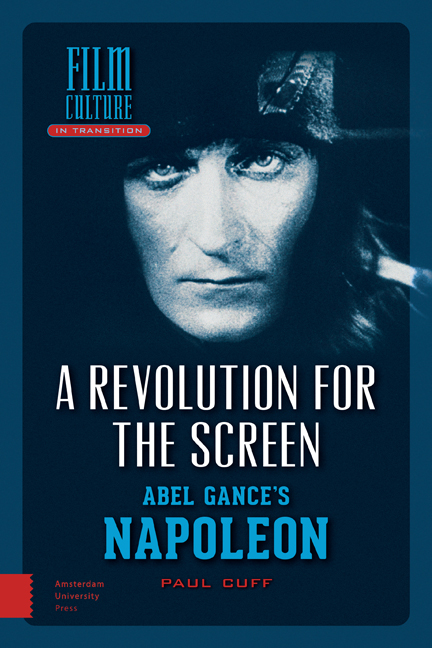Book contents
- Frontmatter
- Dedication
- Contents
- List of Illustrations
- Note on Formatting
- Acknowledgements
- Foreword
- Preface: Critical perspective
- 1 Napoleonic Ambition and Historical Imagination
- 2 Shaping Expectations: The Young Napoléon Bonaparte
- 3 Civilization and Savagery: Visions of the French Revolution
- 4 Mortal Gods: Voices of Power and of Providence
- 5 The Dark Light of Napoleonic Cinema
- 6 A View from the Margins of History
- 7 Melodrama and the Formulations of Family
- 8 Worlds in Transition: Class, consumption, Corruption
- 9 Death and Transfiguration
- Conclusion: The Case for Enthusiasm
- Filmography and Bibliography
- Index
- Film Culture in Transition
8 - Worlds in Transition: Class, consumption, Corruption
Published online by Cambridge University Press: 10 December 2020
- Frontmatter
- Dedication
- Contents
- List of Illustrations
- Note on Formatting
- Acknowledgements
- Foreword
- Preface: Critical perspective
- 1 Napoleonic Ambition and Historical Imagination
- 2 Shaping Expectations: The Young Napoléon Bonaparte
- 3 Civilization and Savagery: Visions of the French Revolution
- 4 Mortal Gods: Voices of Power and of Providence
- 5 The Dark Light of Napoleonic Cinema
- 6 A View from the Margins of History
- 7 Melodrama and the Formulations of Family
- 8 Worlds in Transition: Class, consumption, Corruption
- 9 Death and Transfiguration
- Conclusion: The Case for Enthusiasm
- Filmography and Bibliography
- Index
- Film Culture in Transition
Summary
[For Gance, the French] Revolution, like [the Great War], is the signal of a new era. Its sacrifices must have been useful […]
Bonaparte has observed the progress of the Revolution, its achievements and its errors and is determined to put it back on the right path. Without him, it would be overthrown by reactionary forces or its achievements frittered away by a decadent bourgeoisie. [This is] a Napoléon for the 1920s, addressed to the post-war generation, a stand against the new jeunesse dorée, an appeal to popular imagination.
Although Napoléon will later be entrapped by his family, his ministers and his enemies into a defence of bourgeois order, […] the young Bonaparte is a man for the people, for the future (King 1984a: 158-9).
Introduction
This chapter explores the historical contexts that inform Gance's portrayal of French high society in the Victims’ Ball sequence of NAPOLÉON. Set in late 1795 during the ‘Thermidorian Reaction’ that succeeded the Terror, the sequence is also a response to the conditions of post-war France in the 1920s. After providing an overview of the circumstances of each period, I will analyse the key socialites and politicians portrayed in relevant sequences of NAPOLÉON. In doing so, I want to demonstrate the links between the eighteenth-century events depicted in the film and Gance's concerns for the world of the twentieth century. The social issues at stake in the aftermath of the Great War inform the director's promotion of Bonaparte and the image of a ‘Universal Republic’ in NAPOLÉON.
Corrupting powers
Reacting to the worldwide catastrophe of 1914, many European intellectuals and pacifists began to place ‘the struggle against war and the fight for social justice within the paradigm of the class struggle, seeing them as being part of the national and international struggle against capitalism and imperialism’ (Drake 2005: 75). When the Russian Revolution erupted in 1917, commentators made comparisons to the French Revolution of 1789: both upheavals were seen as the result of not merely political division and foreign invasion but of entrenched social inequalities (Mathiez 1920: 3-4). Gance's J’ACCUSE was one of many angry expressions by former soldiers that attributed wartime ‘price rises and shortages [to] the work of speculators and other economic evildoers’ (Stovall 2012: 29).
- Type
- Chapter
- Information
- A Revolution for the ScreenAbel Gance's Napoleon, pp. 203 - 222Publisher: Amsterdam University PressPrint publication year: 2015



